
Topics for communication in English with young learners
- Speaking
- Teaching qualifications
- Activities
- Tips & Strategies
- Methodology

25.10.2022
The era of the Internet, rapid growth of technologies, epidemic and the war is changing everything: the way we rest, entertain, work and learn. Learning plays a great role in our lives. Distance learning has become crucial these days.
According to the ‘Dictionary of Language Teaching’, distance learning is the linking of learners and teachers in different locations and often in real time, by telephone, telecast, satellite, computer, or through the use of learning packages
On the one hand, it doesn’t matter what is happening around you and where you are located, while teaching or learning, you just need your laptop or mobile phone and the Internet. On the other hand, there are many issues that we, teachers, face during online lessons. Let’s consider the skills teachers need — in order to conduct productive online lessons.
This is a paramount skill, because you will work remotely using the Internet, different online tools, and platforms and you might need to solve various technical issues if they appear.
a. Be aware of the tool
Choose the tool to interact with your students: Skype/Zoom/Google conference. Read how to use their
If you are not sure whether you can use the tool well, ask your friends or more experienced colleagues to help. Try to anticipate the problems and possible solutions. You have to know how it works, because you might need to teach or explain technologies you use to your students.
b. Use interactive tasks
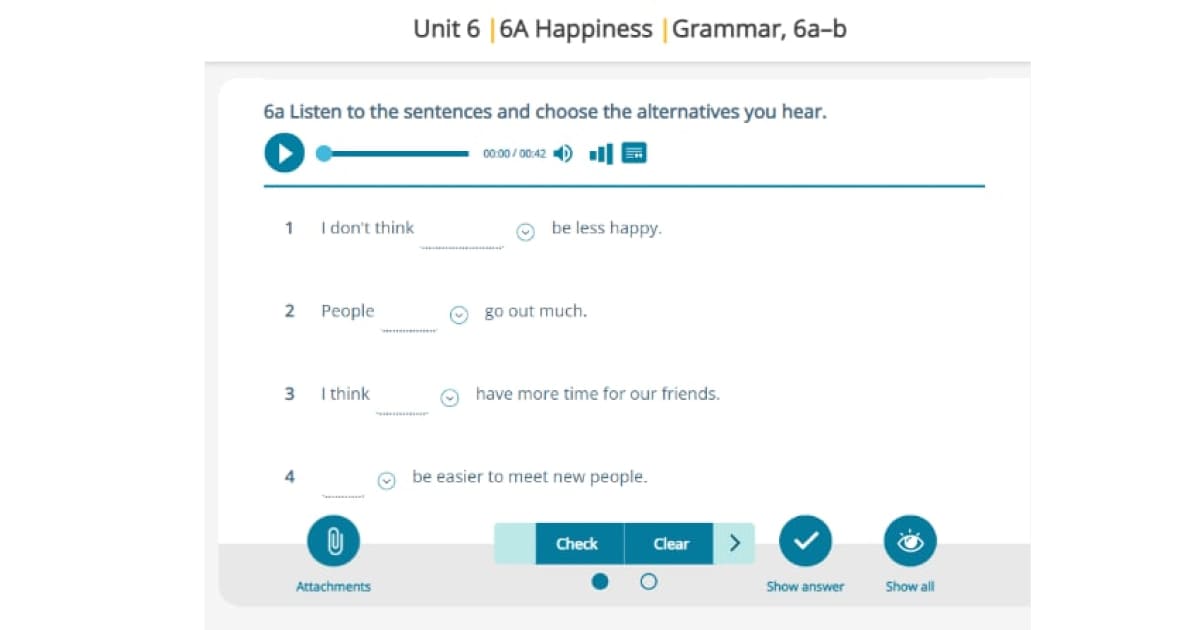
Distance learning is not only about ‘open your books and read/do the task’. It is about using a variety of interactive tasks. There are different sources on the Internet: wordwall/online games/whiteboards/online tests, etc.
c. Be flexible
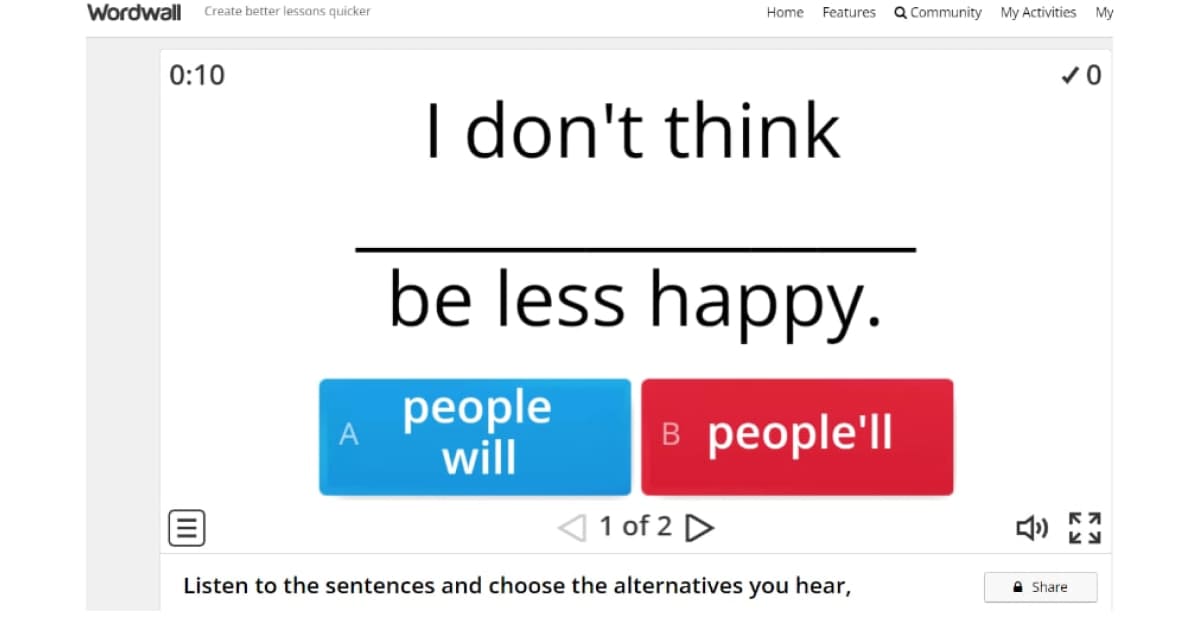
Technical issues do appear. So, you need to be prepared. Just in case, have some extra tasks on another platform or be ready to switch to another activity.
Another source if something goes wrong with a platform: Wordwall
A teacher has to be a good manager who can organize the class, lesson and solve any type of problems immediately.
a. Set up everything, in advance especially when it is the first lesson. Send the instructions on how to download an application (Zoom/Skype), send the link and explain how to join your class, and who to address if there are any technical issues.
b. Start and finish on time and show your students why it is important not to be late, because interesting and useful tasks can be missed. Point out, that all the tasks are connected to some extent.
с. Plan the lesson carefully to work productively. Estimate how much time you will need for the task and think about interaction patterns (individual work/pairwork/groupwork), what to do if any technical issues occur and what your students will have learnt by the end of your class.
d. Organize your class. During the first lesson inform your students about the certain rules like:
Observe your students and find out their likes and dislikes and pay attention to their moods. These will help you arrange pair/group work much better and more effectively.

e. Be ready to solve problems. It doesn’t matter whether it is a technical issue, a conflict, or something personal, you will need to solve them as soon as possible. If it is a technical issue — Google is your best friend. If it is a conflict between the students or you and a student, enlist help.
Talk to your colleagues, and if possible, get them to come and observe the lesson to see if they notice things you are not aware of. If it is something personal, just be honest. Talk/write to your student individually.
To be a teacher is not an easy task. You will always have to develop yourself in different areas and work on your personal qualities as a human being.
a. Set a personal example
When setting rules in the class, please follow them, too. Don’t be late for lessons, respect your students and their opinions, don’t use your native language, check your students’ homework on time, etc. If you promise to do something — do it. If you set the deadline for finding something out — do it. Otherwise, your students will follow your example and disregard the rules.
b. Imagine you are a student while planning a lesson
Try to answer the following questions:

How to spark motivation in teenage EFL learners: practical tips
Read morec. Be a human
Be yourself, because sooner or later your students will reveal who you are even online. They will stop trusting you and being motivated. Try to understand your students. We do have problems at work or at home, or some problems with health. Trust them and find the ways out together.
Even if it is a super-puper module test, be helpful. You are the person who notices errors and difficulties your students bump into. Find out how to help and offer your assistance. Don’t be afraid to look silly sometimes. Humor helps a lot, especially during distance learning. It breaks the ice and established good rapport between you and your students.
Believe in your students and be interested in their progress. You are a great motivator for them.
The challenges are there, but they are only temporary challenges. Online education will flourish.
Philip Regier, VP and Dean of ASU Online
Some people consider distance learning a boring and non-effective way of studying. They believe that it happens so because students become less motivated and disorganized. It is not really true. Distance learning can be as exciting and effective as ‘a physical lesson’.
The reasons why students become less motivated in learning English are similar for both distance and ‘physical lessons’. So here are the hints on how to maintain discipline and interest of students during online lessons.
Stronger students will either be bored by the slowness of weaker students or frustrated by their inability to keep up. What are the possible ways of dealing with the situation?
1. Differentiate tasks
With the time you will start to know your students better. Thus, it will help you to form different groups. While weaker students are working on a simpler task, provide stronger students with a more advanced exercise.
For weaker students:
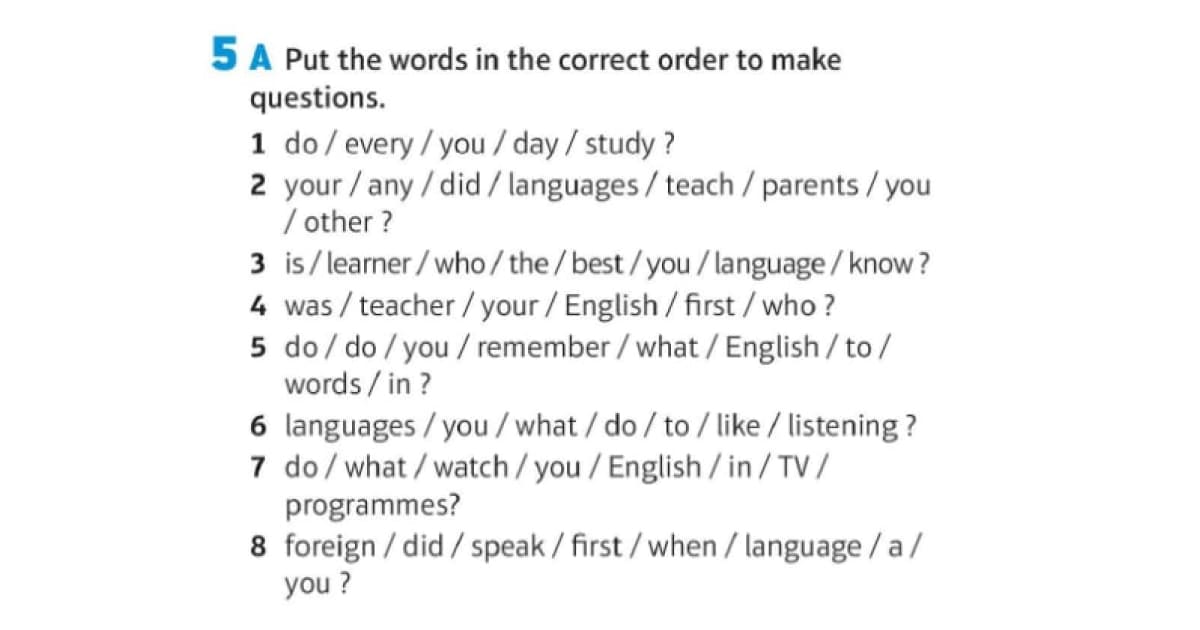
For stronger students:
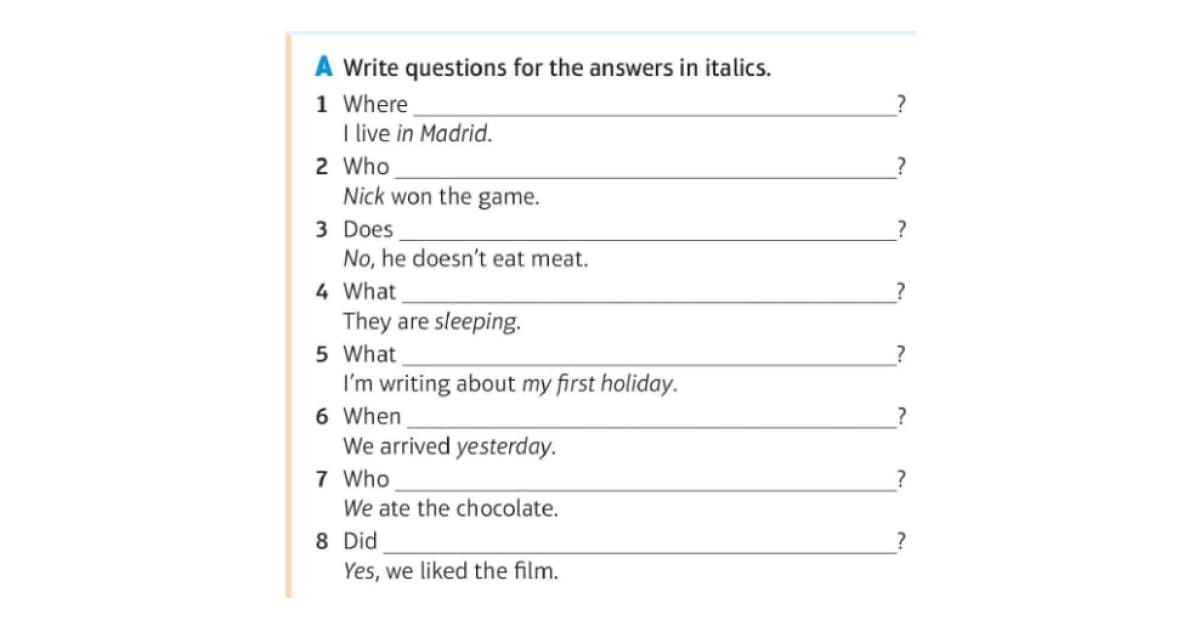
2. Adapt materials for different levels
Encourage your students to do the same tasks in a different way according to their abilities.
3. Use the students
Stronger students can help you. When working in pairs or in groups with weaker students, they can explain things or provide a good model of language performance. But this has to be done with great sensitivity so that students don’t get alienated by their over-knowledgeable peers.
It is doubly difficult for the teacher to make contact with students during online lessons and it is difficult for the students to ask and receive individual attention.
When a teacher ignores students, they start doing their own things during the lesson and get distracted from it. Despite the problems of big classes, there are things we can do.
1. Use pairwork and groupwork
These types of interaction maximize student participation — everyone is involved.
When using pairwork and groupwork with big classes, give clear instructions and don’t forget to ask instruction checking questions (ICQs). Also agree with students on how to stop the activity — set the timer and ask them to be ready to give feedback on their answers.
2. Think about vision
Teachers very often adapt the tasks. So how should we share them with our students? How can we make our students do the tasks and then check? There are several ways: send the link to the Google doc, Google presentation or Jamboard, or work on the platform (Pearson/Oxford, etc). The only thing, you’ll need to think about it beforehand.
3. Nominate group leaders
They can check that everyone in their group has understood the task and give feedback.
This can lead to constant failure to do any homework, blunt refusal to do certain activities, constant lateness, and even rudeness. There are some things teachers can do to try and solve the problems of uncooperative students.
1. Use interactive activities
However, make it clear that the most enjoyable interactive activities will only be used when the class is functioning properly. Otherwise, they will be back to more formal teaching and language study.
2. Make a language-learning contract
It forms a behavior blueprint for everyone. Talk directly to the students about issues of teaching and learning. They can get the students’ agreement on ways of behaving and find out what they expect or need from the teacher.
The subjects covered can conclude such things as when the students should not use their native language, what teachers expect from homework, joining the class on time, etc. Teachers will have to bind themselves to good teacher behavior too.
3. Write/talk to individuals
Write in the chat (Telegram/Viber, etc.) that you think there is a serious problem in the class and you want to know what can be done about it. The replies will reveal some of the problems.
You can also call/write your student personally. Ask them what they feel about the class, why there’s a problem, and what they think can be done about it. But don’t let the problem flow, otherwise, it will get even worse.
Have you solved problems in these ways in your class?
This may have to do with the students’ own character, or because there are other students who dominate and almost intimidate, or because the students are simply not used to talking freely — for reasons of culture and background. Whatever the reason, it makes no sense to try and bully such students into talking. It will only make them more reluctant to speak. There are some things to try:
1. Use pairwork/groupwork
This will provoke quiet students into talking. When they are with one or two/three other students, they are not under so much pressure as they are if asked to speak in the online class.
2. Allow them to speak in a controlled way at first
Don’t include quiet students into ‘spontaneous and risk-taking fluency conversations’. Do it in stages:
controlled practice → semi-controlled practice → free practice.
Psychologically, they are more likely to be able to respond.
3. Use role-plays
Most students love role-playing. Quiet students, too. Moreover, they start speaking more freely when they are playing a role. You can easily organize role-playing games during online lessons.
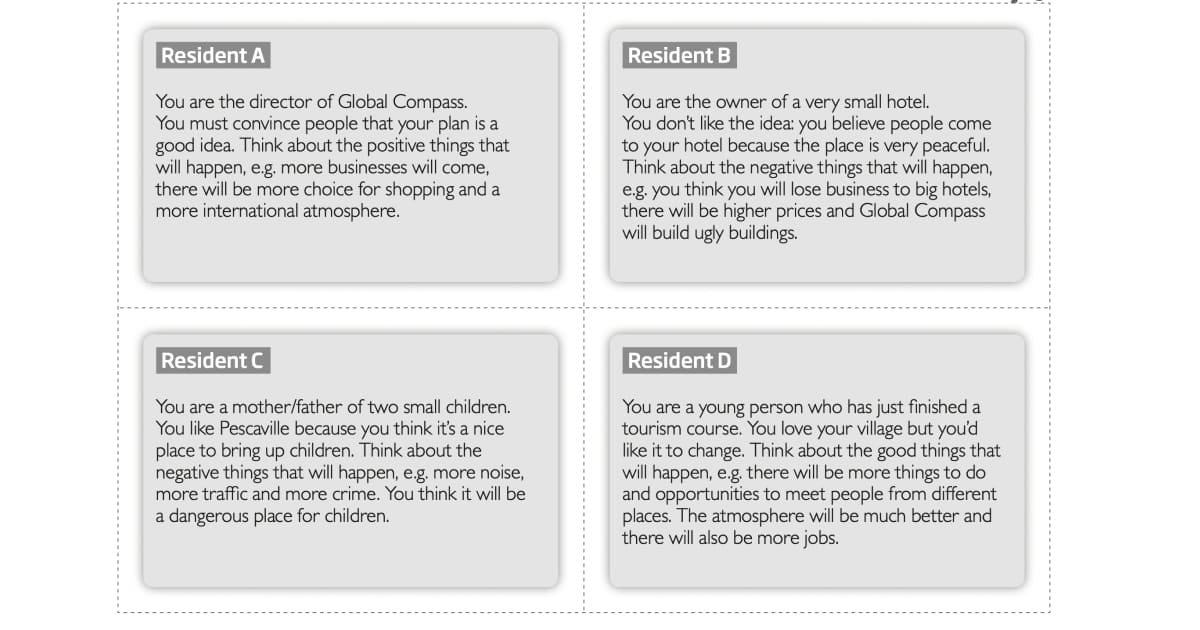
Do you want to know more about it? Join our course!
Online Tools for English Language Teaching
Olha Ivanchenko
Author
Senior Teacher | General English | Passionate Educator & Lifelong Learner
Comments
Leave your comment